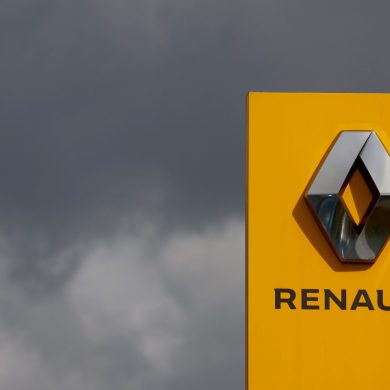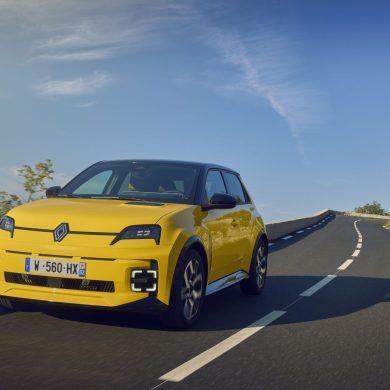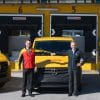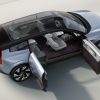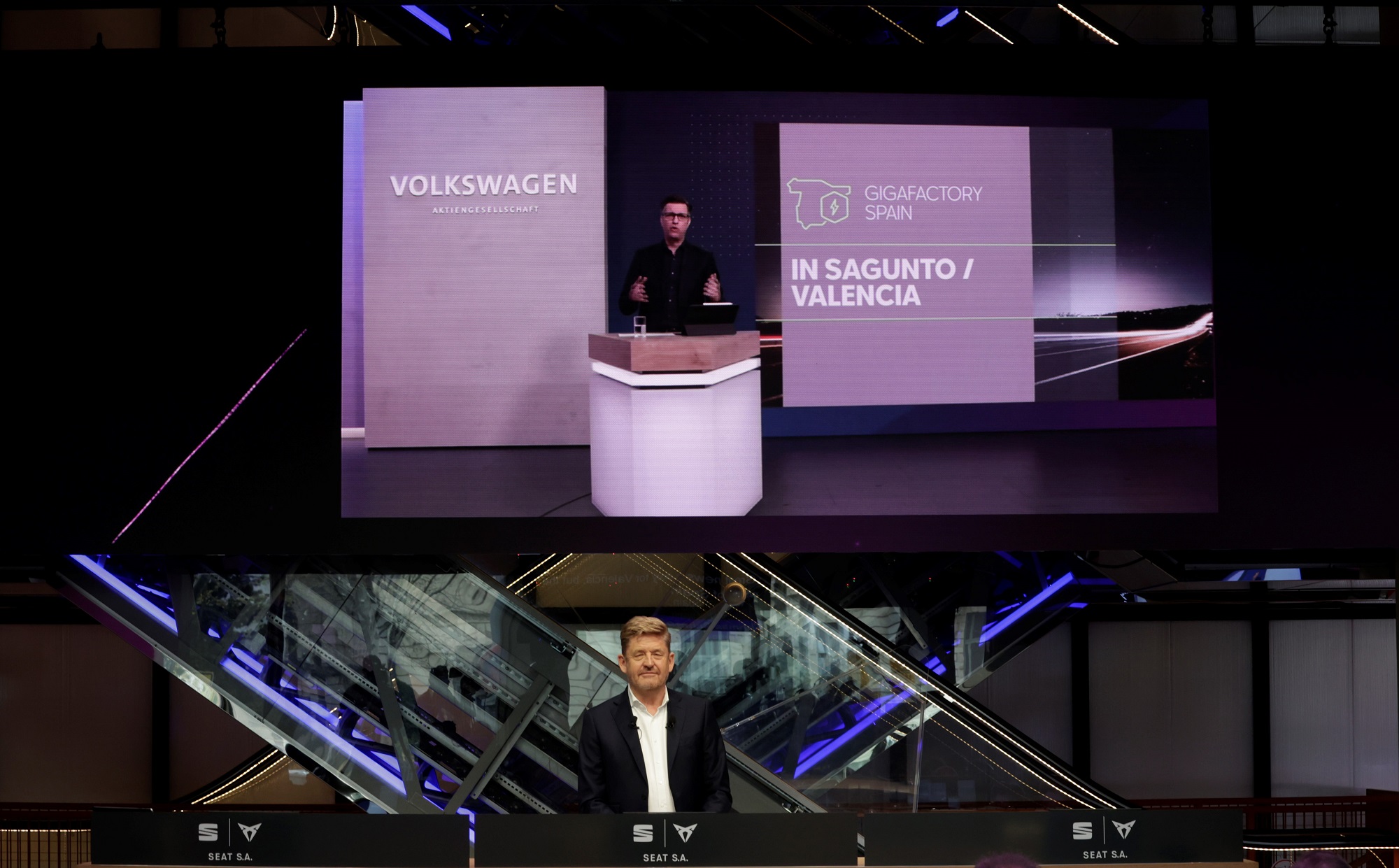
SEAT and Volkswagen Group have announced their intention to spend more than €7 billion to electrify Spain as part of their commitment to the country and the development of electric vehicles there. This will represent the largest industrial investment in Spanish history. The Future: Fast Forward project will include a new battery plant in Sagunto, Valencia. All projects and investments are subject to final approval of the submission to the PERTE programme.
"This project is extremely important for the group Volkswagen, for Spain and for the whole of Europe. It is our ambition to electrify Spain and we are willing to invest more than €7 billion together with external suppliers and partners to electrify our plants in Martorell and Pamplona and to install an electric battery production chain in Valencia." said Thomas Schmall, Member of the Board of Management of Volkswagen AG responsible for Technology and Chairman of the Board of Management of SEAT SA.
The Volkswagen Group is aiming for a production capacity of 40 GWh per year and plans to employ more than 3,000 people in Valencia. The timetable is tight: to be ready to start production in 2026, construction must begin by the end of the year. The first milestone must be a positive outcome of the submission to the PERTE programme and the final permits. "In Valencia, we will create nothing less than a next-generation factory: A standardised plant, producing batteries and powered by renewable energy sources, allowing for sustainable production.", Schmall said.
Wayne Griffiths, Chairman of SEAT S.A., said: "Future: Fast Forward has the potential to transform the Spanish automotive industry and democratise electric mobility across Europe. The more than €7 billion that the Volkswagen Group and SEAT S.A. will commit to Future: Fast Forward will represent the largest industrial investment in Spanish history."
CUPRA development strategy
The company has unveiled one of the new CUPRA models to be launched in 2024: an all-new electrified SUV with mild-hybrid and plug-in-hybrid versions to be produced in Hungary. With an all-electric range of 100 km, it will lead a new generation of PHEVs.
The new SUV is one of four new models that will soon join the CUPRA range. In 2024, the CUPRA Tavascan and the new SUV will hit the market, followed by the urban electric vehicle in 2025, with one more model expected. In 2022, CUPRA plans to double its sales, double its sales network and double its turnover to €5 billion - as well as double the number of CUPRA Masters and CUPRA City Garages around the world.
The President of SEAT S.A. explained that the company needs to transform itself into a stronger and more sustainable organisation, increasing competitiveness and profitability: "The future sustainability of our company is the development of the CUPRA. We see the CUPRA as the driver for improving profitability and we must put all our efforts into its development.", Griffiths said.
2021: The unexpected year
The company's financial results for 2021 came from a year marked by uncertainty and a global shortage of semiconductors that prevented SEAT S.A. from achieving the recovery it had hoped for. This led to a significant loss of production volume. Negative impact on sales and a negative operating result of -371 million euros (2020: -418 million euros). Profit after tax was -256 million euros (2020: -194 million euros) and turnover increased to 9,256 million euros (+5.4%), while average sales revenue per vehicle reached 16,850 euros per car, almost 480 euros higher than in 2020.
"Despite the negative environment and losses, we continued our aggressive investment path and invested more than €900 million in spending R&D and investments in 2021, an increase of 7% compared to 2020. This demonstrates our strong and ongoing commitment to bring future products to market. In addition, we continued to make significant investments in building the CUPRA brand." said David Powels, Vice President Finance and Information Technology of SEAT S.A.
The global shortage of semiconductors has limited production and SEAT S.A.'s ability to meet the high demand for both SEAT and CUPRA. The company's sales increased by more than 10%, from 427,000 to 471,000 cars, due to CUPRA and demand for electric models.
CUPRA tripled its sales, reaching almost 80,000 cars, and turnover increased from €932 million in 2020 to almost €2.2 billion in 2021. Sales for the SEAT brand exceeded 391,000 cars. This represents a decrease of 2% from 2020, which can be attributed to a shortage of semiconductors. Overall, sales of CUPRA and SEAT electric and hybrid vehicles quadrupled from 15,000 to 61,000 cars.


